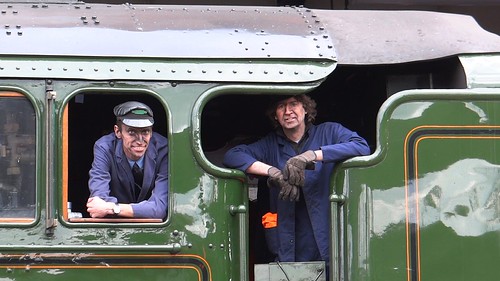There is no shortage of private and volunteer run heritage railways throughout the UK where these locomotives can be seen running throughout the year. In many people's eyes it is time that these heritage services should be confined to those railways. Is it not time to stop a minority of people playing “choo choos” on the mainline and “old codgers” reliving their youth to the inconvenience and safety detriment of all others wishing to get to work or carry out their daily business via Britain's railways.
Once again you seem to be confusing the WCRC with all steam locomotives and their operators... I think some people might take offence at the "old codgers" bit too, here's a couple of photos of Flying Scotsman's crew, they don't look very old to me!


Last edited:
